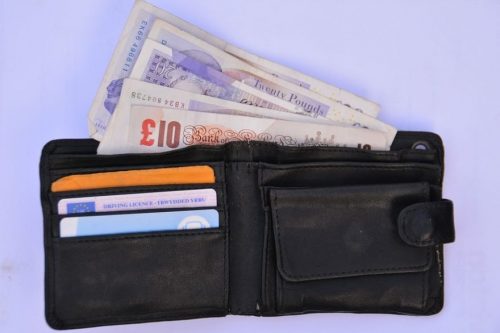Inflation drops to lowest rate in two-and-a-half years

The rate of inflation has dropped – down from 3.4% in February to 3.2% in March.
The new figure is the lowest annual rate for two-and-a-half years, with the price of food rising less quickly.
Grant Fitzner, chief economist at the Office for National Statistics, said: “Once again, food prices were the main reason for the fall, with prices rising by less than we saw a year ago.
“Similarly to last month, we saw a partial offset from rising fuel prices.”
Meanwhile, the cost of raw materials fell by 2.5% and the cost of goods leaving factories rose by 0.6%.”
Chancellor Jeremy Hunt said: “The plan is working: inflation is falling faster than expected, down from over 11% to 3.2%, the lowest level in nearly two and a half years, helping people’s money go further.
“This welcome news comes on top of our cuts to national insurance, which save the average worker £900 a year, so people should start to feel the difference as well as see it in their pay cheques.”
The pressure will now be on the Bank of England to cut interest rates next month. Some analysts believe that economists at the Bank will be under pressure to cut the 5.25% rate from June as inflation spirals towards its target rate of 2% later this year.
Alice Haine, personal finance analyst at Bestinvest by Evelyn Partners, the wealth manager, comments: “Naturally, most households would want an interest rate cut to happen as soon as possible to reduce the impact of high borrowing costs, but they may have to wait longer than hoped with economists divided on when a rate reduction will happen. While some are tipping a summer rate cut as early as June, others expect a change in August or even in the autumn.
“Easing inflation does not automatically guarantee an imminent interest rate cut. While the BoE acknowledges that interest rate cuts are the ‘direction of travel’, they say they require consistent evidence that inflationary pressures are in retreat before they can make a move. This means borrowing costs could remain higher for longer – not something households starting to get a grip on their finances after the protracted financial squeeze of the past couple of years may want to hear.
“For now, consumers should focus on the factors that may allow the central bank to cut interest rates sooner rather than later. These include easing inflation as well as a softening labour market with unemployment on the rise, employment in decline and vacancies continuing to fall.”







